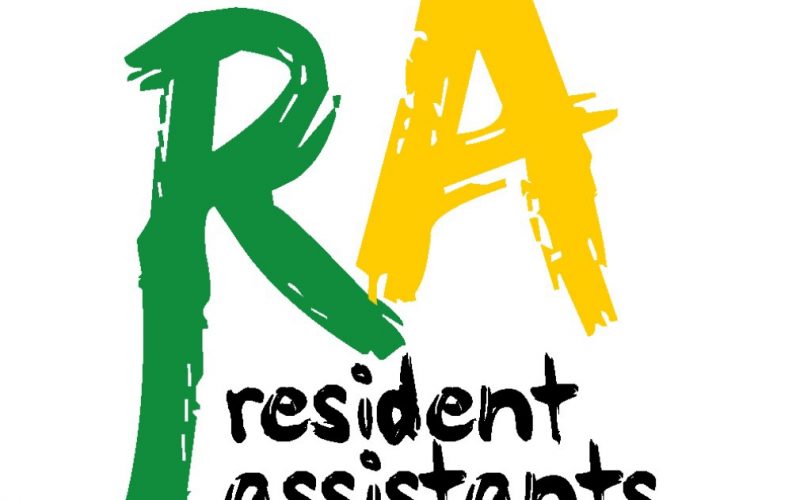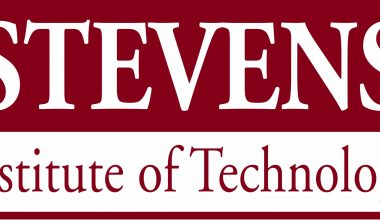College life is an exciting and transformative journey filled with new experiences, independence, and personal growth. And then the new faces, tons of information, and maybe a little bit of confusion about how things work, especially in your dorm. Who’s that friendly upperclassman hanging out by the elevator? Are they there to bust you for that extra mini fridge in your room?
Nope! That’s actually your RA, also known as a Resident Assistant. They’re kind of like your dorm room guardian angels, there to help you navigate the ins and outs of college life and make your living space feel a little more like home.
But what exactly does an RA do? Is their job just to enforce rules and tell you to keep the noise down? There’s actually a lot more to it than that! In this article, we will break down who an RA is and what they do.
Table of contents
- Who is an RA in college?
- What are the qualifications or requirements to become a Resident Advisor in college?
- How are Resident Advisors trained to handle their responsibilities?
- Can an RA enforce disciplinary actions or policies within the residence halls?
- What types of events or programs do RAs typically organize for residents?
- Are RAs available 24/7 for assistance?
- How can residents approach an RA for support or guidance?
- What Does an RA Do in College?
- How much do RAs Get Paid in College?
- Is it Worth it to be an RA in College?
- FAQs – RA in college
- Conclusion
- References
- Recommendations
Who is an RA in college?
An RA, or Resident Advisor, is a student leader who resides in campus housing and serves as a resource, mentor, and role model for fellow students. RAs are typically selected through a competitive application and interview process by the college or university’s housing department.
They undergo training to acquire the necessary skills and knowledge to fulfill their responsibilities effectively.
The primary role of an RA is to create a supportive and inclusive living environment within the residence halls. They serve as a point of contact for residents, guiding them on academic, personal, and social matters.
RAs enforce campus policies, promote safety and security, organize community-building activities, and address conflicts or concerns among residents. They work closely with other campus staff, such as Residence Life professionals and campus security, to ensure a positive and enriching college experience for all residents.
Read also: What Is The Coalition Application In College? Full Explanation
What are the qualifications or requirements to become a Resident Advisor in college?
The qualifications and requirements to become a Resident Advisor (RA) in college vary depending on the institution and its housing department. However, some familiar qualifications and requirements for aspiring RAs may include the following:
- Full-time student status: RAs are typically required to be enrolled as full-time students during their tenure. This ensures that they can balance their academic responsibilities with their role as an RA.
- Good academic standing: Most colleges expect RAs to maintain a satisfactory academic record. The specific GPA requirement may vary, but a minimum GPA is typically necessary to demonstrate academic success and commitment.
- Strong interpersonal and communication skills: RAs must be effective communicators and possess strong interpersonal skills to interact with residents, address concerns, and foster community within the residence halls.
- Leadership and teamwork abilities: RAs should demonstrate leadership potential and the ability to work collaboratively with other RAs, campus staff, and residents. They often serve as role models and mentors for their peers.
- Knowledge of campus resources and policies: RAs must be familiar with campus resources, policies, and procedures to guide residents appropriately. They may undergo training to gain this knowledge or receive ongoing support from the housing department.
- Responsible and mature demeanor: RAs are entrusted with the well-being and safety of their residents. They should demonstrate responsibility, maturity, and the ability to handle confidential and sensitive information with discretion.
- Completion of application and interview process: Prospective RAs are typically required to complete an application and participate in an interview process. The application may involve submitting a resume, providing references, and answering essay questions to assess their suitability for the role.
Check out: What to Wear to a College Visit: Fashion Tips to Make a Lasting Impression
How are Resident Advisors trained to handle their responsibilities?
Resident Advisors (RAs) undergo comprehensive training programs to equip them with the necessary skills and knowledge to handle their responsibilities effectively. The training typically takes place before the start of the academic year and continues throughout their tenure.
The specific training process may vary depending on the college or university, but here are some standard components of RA training:
- Orientation: RAs participate in an orientation program that introduces them to the role and responsibilities of an RA. They learn about the housing department’s mission and goals, the residence halls’ policies and procedures, and the expectations for their conduct as RAs.
- Policies and procedures: RAs receive training on campus policies and procedures related to safety, security, and the well-being of residents. They learn how to enforce policies, handle emergencies, and address various situations that may arise within the residence halls.
- Conflict resolution and mediation: RAs are trained in conflict resolution techniques and mediation skills to assist residents in resolving conflicts. They learn to listen actively, facilitate open communication, and help residents find mutually beneficial solutions.
- Resource referral: RAs are educated about the various resources available on campus, such as counseling services, academic support centers, health services, and student organizations. They learn how to refer residents to these resources based on their needs effectively.
- Communication and leadership skills: RAs develop practical communication skills, including active listening, conflict management, and public speaking. They also receive training in leadership development, teamwork, and decision-making.
- Ongoing support and professional development: Throughout their tenure, RAs typically receive continuing support, supervision, and opportunities for professional development. This may include regular meetings with a supervisor, participation in workshops or conferences, and peer collaboration.
It would be best to read: What exactly is College Readiness and How Important is it?
Can an RA enforce disciplinary actions or policies within the residence halls?
As part of their responsibilities, Resident Advisors (RAs) are often authorized to enforce disciplinary actions and policies within the residence halls. RAs act as liaisons between residents and the housing department or campus administration regarding upholding community standards and ensuring a safe and respectful living environment.
The specific disciplinary actions and policies RAs enforce can vary depending on the college or university. However, typical examples of policies include noise regulations, guest policies, substance abuse policies, and guidelines related to safety and security.
When an RA identifies a policy violation, they are typically expected to follow a specific protocol. This may involve documenting the incident, discussing the breach with the resident(s) involved, and initiating appropriate consequences or referrals as outlined by the housing department or campus policies.
Effects can range from warnings and educational interventions to more severe measures such as fines, probation, or even eviction from the residence halls.
It’s important to note that while RAs have the authority to address policy violations, they are not the ultimate decision-makers in disciplinary matters. Severe or repeated violations are usually escalated to higher-level professionals within the housing department or campus administration, who may determine and implement further disciplinary actions.
The role of RAs in enforcing policies is primarily focused on education, accountability, and fostering a respectful living environment. They aim to promote a positive community where residents can thrive academically and personally while adhering to the established guidelines.
Read also: What are Credit Hours in College? How Does it Work?
What types of events or programs do RAs typically organize for residents?
Resident Advisors (RAs) organize various events and programs to engage residents, foster a sense of community, and provide opportunities for personal growth and development. The specific types of events and programs can vary depending on the college or university, the residents’ preferences, and the housing department’s goals. Here are some common examples:
- Social Events: RAs organize social activities to encourage residents to interact, make friends, and build connections. These can include icebreaker games, movie nights, game tournaments, themed parties, and social mixers.
- Educational Workshops: RAs facilitate workshops and informational sessions on various topics of interest to residents. These may cover study skills, time management, stress management, financial literacy, career development, and diversity and inclusion.
- Academic Support Programs: RAs create initiatives to support residents’ academic success. This can include study groups, tutoring sessions; study breaks with snacks, exam preparation workshops, or collaborations with academic resource centers on campus.
- Cultural and Diversity Programs: RAs organize events that celebrate and promote cultural diversity within the residence halls. These include cultural festivals, food tastings, panel discussions, movie screenings, or guest speaker series focusing on different cultures, identities, and perspectives.
- Community Service Projects: RAs encourage residents to give back to the community by organizing volunteer opportunities or community service projects. These can include food drives, clothing donation campaigns, environmental initiatives, or involvement in local charity organizations.
- Floor or Hall Competitions: RAs organize friendly competitions among residents, such as trivia nights, sports tournaments, talent shows, or decorating contests. These activities foster a sense of camaraderie and healthy competition within the residence halls.
Check out: How Old Are Freshman In College? (Your Questions Answered)
Are RAs available 24/7 for assistance?
RAs (Resident Advisors) typically have specific working hours rather than being available 24/7. While they play a crucial role in supporting and assisting residents, they also have academic and personal responsibilities. The specific working hours and availability of RAs may vary depending on the college or university’s policies and the structure of the residence life program. Here are some standard practices regarding the availability of RAs:
- Duty Shifts: RAs often have designated duty shifts during which they are available and on-call to respond to emergencies, address immediate concerns, and assist residents. These shifts may be scheduled during evenings, weekends, or overnight hours when the need for support is typically higher.
- Office Hours: RAs may hold regular office hours where residents can meet to seek guidance, discuss concerns, or ask questions. These office hours are typically scheduled during specific times and days of the week, allowing residents to interact face-to-face with RAs.
- Programming and Events: RAs are actively involved in organizing events and programs for residents and are typically present during these activities. These events can occur at various times, including evenings and weekends, to accommodate residents’ schedules.
- Communication Channels: RAs often provide residents with contact information, such as email addresses or phone numbers, to reach out for non-emergency inquiries or concerns. They may have designated response times or specific hours when they actively check and respond to messages or calls.
Check out The Ultimate Guide to Finding the Best Parties in College |
How can residents approach an RA for support or guidance?
Residents can approach an RA (Resident Advisor) for support or guidance by following these steps:
- Establish a Connection: Take the initiative to introduce yourself and build a rapport with your RA. Attend floor or hall meetings, social events, or programs organized by the RA to get to know them and other residents.
- Attend Office Hours: RAs often hold office hours where residents can visit for one-on-one discussions. Take advantage of these designated times to address concerns, ask questions, or seek guidance on personal, academic, or social matters.
- Use Communication Channels: RAs typically provide contact information such as email addresses, phone numbers, or messaging platforms. Contact them through these channels to initiate a conversation or schedule a meeting.
- Seek Confidential Conversations: RAs are trained to handle personal and sensitive information with discretion. If you have a concern that you would prefer to discuss in private, inform your RA and request a confidential conversation.
- Approach with Respect and Openness: When approaching an RA, maintain a respectful and open attitude. Be honest and clear about your concerns or questions, and listen attentively to their responses and guidance.
- Be Specific and Prepared: Before approaching your RA, take some time to think about what you want to discuss or seek guidance on. Being specific about your concerns or questions can help the RA provide more tailored support.
- Follow-Up: If your conversation with the RA requires further action or follow-up, communicate and follow through on any agreed-upon steps. This helps maintain a productive and collaborative relationship.
What Does an RA Do in College?
In college, an RA (Resident Advisor) plays a vital role in the residence halls and serves as a resource, mentor, and community builder for fellow students. Here are some key responsibilities and duties of an RA:
Building Community
RAs work to create a sense of community within the residence halls. They organize and facilitate activities and events that promote social interaction, inclusion, and a positive living environment.
Peer Support and Guidance
RAs are available to provide support, advice, and guidance to residents. They help address academic concerns, offer personal advice, and refer residents to campus resources as needed.
Policy Enforcement
RAs ensure residents adhere to campus policies and guidelines within the residence halls. They educate residents about the rules, enforce policies when necessary, and handle any potential violations or conflicts.
Safety and Security
RAs play a role in maintaining the safety and security of the residence halls. They monitor the building, conduct regular safety checks, and respond to emergencies or incidents within the galleries.
Crisis Response
RAs are trained to handle various crises. They serve as a point of contact during emergencies, provide assistance, and know how to access appropriate campus resources or support services.
Mediation and Conflict Resolution
RAs assist residents in resolving conflicts or roommate issues. They act as mediators, facilitating communication and helping residents find mutually agreeable solutions.
Resource Referral
RAs are knowledgeable about campus resources and services. They can provide information and referrals to academic support centers, counseling services, health clinics, student organizations, and other campus resources.
Administrative Duties
RAs have administrative responsibilities such as documenting incidents, completing paperwork, maintaining accurate records, and submitting reports to the housing department.
On-Call Duty
RAs often have scheduled on-call shifts during evenings, weekends, or overnight hours. They can respond to emergencies, assist, and address immediate concerns during these times.
Generally, they play a crucial role in enhancing the residential experience for students. They support personal growth, foster a sense of belonging, and contribute to a positive and inclusive community within the college or university’s residence halls.
It would help if you read: Can You Wear Hats In College? (Your Questions Answered)
How much do RAs Get Paid in College?
The compensation for Resident Advisors (RAs) in college varies depending on the institution and its policies. RAs typically receive a combination of financial compensation and additional benefits. However, it’s important to note that the specific amounts can differ significantly between colleges and universities. Here are some factors that can influence the compensation for RAs:
- Institution and Location: The compensation may vary based on the specific college or university and the cost of living in the region where the institution is located. RAs at schools in higher-cost areas may receive higher pay compared to those in lower-cost locations.
- Level of Responsibility: The responsibility assigned to RAs may influence the compensation. Some RAs may oversee larger residential communities or have additional duties, which can impact their pay.
- Duration of Employment: The compensation structure can differ based on whether the RA position is a year-long commitment or limited to a single semester or academic year.
- Additional Benefits: RAs often receive other benefits along with their pay. These benefits may include a free or reduced-cost room, meal plans, parking permits, or professional development opportunities.
To determine the specific compensation for RAs at a particular college or university, it is recommended to consult the housing or residence life department or refer to the institution’s official documentation. They will have the most accurate and up-to-date information regarding the payment structure and benefits for RAs.
Read also: Should Students Get Paid Money For Having Good Grades? Pros and Cons
Is it Worth it to be an RA in College?
Whether being an RA (Resident Advisor) in college depends on your personal goals, interests, and circumstances, here are some factors to consider when evaluating the value of being an RA:
- Personal Growth: Being an RA can provide valuable unique growth opportunities. You can develop leadership, communication, problem-solving, and interpersonal skills transferable to various life aspects.
- Community Engagement: As an RA, you can actively contribute to building a positive and inclusive community within the residence halls. Being an RA can be rewarding if you enjoy working with others, fostering connections, and creating a supportive environment.
- Financial Compensation: RAs often receive monetary compensation, which can help offset the cost of tuition or living expenses. Additionally, benefits such as a free or reduced-cost room and meal plan can provide financial relief.
- Networking and Professional Development: Being an RA allows you to network with housing and residence life professionals. You may have opportunities to attend conferences, workshops, or training sessions that contribute to your personal and professional development.
- Time Commitment: Being an RA requires a significant time commitment. Balancing your responsibilities as an RA with academics and personal life can be challenging. It’s important to consider whether you have the time management skills and flexibility to fulfill your obligations effectively.
- Impact on Academics: Being an RA can be demanding and may require balancing academic commitments with RA responsibilities. Consider how being an RA may impact your ability to allocate time and energy to your studies.
- Work-Life Balance: RAs often have on-call duties and may need to address emergencies or resident concerns outside regular working hours. It’s essential to assess whether you are comfortable with potential disruptions to your personal time and social life.
FAQs – RA in college
RAs have multiple responsibilities, including creating a supportive community, enforcing campus policies, organizing events and programs, assisting with conflict resolution, and providing guidance and support to residents. They act as a resource for academic success, personal development, and overall well-being.
RAs play a crucial role in maintaining a safe living environment. They enforce safety protocols, educate residents on emergency procedures, and address any safety concerns promptly. RAs collaborate with campus security and other relevant authorities to ensure the well-being of residents and respond to any emergencies or incidents that may arise.
Yes, RAs are often knowledgeable about campus resources and can guide on academic matters. They can help connect residents with tutoring services, academic advisors, and study groups. RAs may also organize study sessions or workshops to promote academic success in residence halls.
RAs organize community-building activities, such as social events, workshops, and cultural celebrations, to encourage interaction among residents. They create inclusive and welcoming environments where residents can connect, form friendships, and engage in meaningful dialogue. RAs also facilitate roommate mediation and encourage open communication to build positive relationships among residents.
Absolutely. RAs are trained to provide emotional support and guidance to residents facing personal challenges. They can offer a listening ear, refer residents to counseling services or health resources, and provide information on self-care practices. RAs promote a supportive and inclusive environment that prioritizes the well-being of residents.
Conclusion
Resident Advisors (RAs) in college play a vital role in shaping the student experience, fostering a sense of community, and providing essential support to their fellow residents.
RAs serve as mentors, advisors, and friends, helping students navigate the challenges of college life and fostering personal growth. They are often the first point of contact for residents in need, offering support and resources for academic success, personal development, and overall well-being.
Their commitment to building a strong sense of community and promoting a positive living environment dramatically enhances the college experience for everyone involved.
References
- bestcolleges.com– What do resident advisors do?
- collegeraptor.com– Become an RA
- theedadvocate.org– What does a college resident advisor RA do?
- wikipedia.org– Resident Assistant
Recommendations
15 Best Personal Safety Devices For College Students: 2024 Top College Checklist
Tips To Organizing Your First Year College Classes
Do College Grades Matter? Here’s Why Your College GPA Matters



